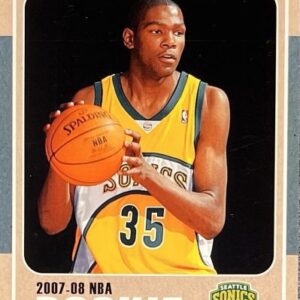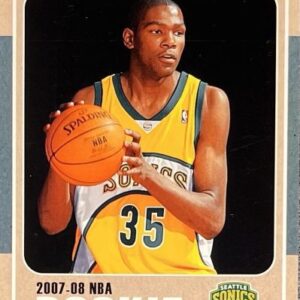Two men from Washington state, Anthony Curcio, aged 43 from Redmond, and Iosif Bondarchuk, aged 37 from Lake Stevens, recently found themselves in hot water as they were charged with wire fraud and conspiracy to commit wire fraud. What did they do to warrant such serious charges, you may wonder? Well, the duo was involved in a scheme that revolved around the sale of fraudulently graded sports and Pokémon cards, with a particular highlight being a counterfeit Michael Jordan rookie card. These deceptive actions managed to rake in over a staggering $2 million from unsuspecting buyers, landing the duo in the hot seat with the law enforcement authorities.
The U.S. Attorney’s Office for the Southern District of New York released a statement detailing the charges brought against Curcio and Bondarchuk. According to the announcement, the two men were not all that innocent between 2022 and May 2024. They partook in various dubious practices that were geared towards the sale of these cards. Allegations pointed towards the swapping out of lower-grade cards and placing them in cases that falsely portrayed them as higher-grade PSA 10 specimens. This misrepresentation significantly boosted the market values of these cards, creating a facade that ultimately deceived numerous individuals seeking authentic collectibles.
Among the fraudulent items that were successfully sold was a 1986 Fleer Michael Jordan rookie card. The card was deceitfully presented as being in gem mint condition and was consequently sold for a whopping $171,000 through an online marketplace located in Manhattan. It wasn’t long before the selling platform, MySlabs, unearthed the card’s true nature and swiftly reported the matter to both PSA and the authorities for further investigation. Additionally, other misrepresented cards in the scheme included a 2009 Topps rookie card belonging to Stephen Curry and a 1980 Topps card featuring a trio of basketball legends – Larry Bird, Magic Johnson, and Julius Erving.
The fraudulent activities didn’t just stop at sports cards but extended to include Pokémon cards as well. A prime example of this was the sale of a 1999 first-edition Venusaur card to an undercover law enforcement officer in Manhattan for $10,500. The fraudulent labeling as a PSA 10 undoubtedly added to the allure of the card, making the transaction even more deceitful at its core.
Curcio and Bondarchuk were accused of peddling these misrepresented cards through various channels, spanning from card shops and shows to online auctions. When buyers raised concerns regarding the authenticity of their purchases, Bondarchuk reportedly resorted to misleading tactics by providing false contact information, often attributing it to unrelated individuals in a bid to further disguise their fraudulent activities.
With the threat of conviction looming over them, both men potentially face up to 20 years behind bars for their transgressions. The collaborative efforts between the FBI and PSA’s Brand Protection division throughout the investigation shed light on the commitment to safeguard collectors and uphold the integrity of the trading card market.
The cautionary tale that unraveled with Curcio and Bondarchuk serves as a stark reminder of the critical need for vigilance within the collectibles market. It also sends out a clear warning to any individuals harboring thoughts of engaging in similar deceptive practices – the consequences can be dire, and the long arm of the law will catch up sooner or later.






